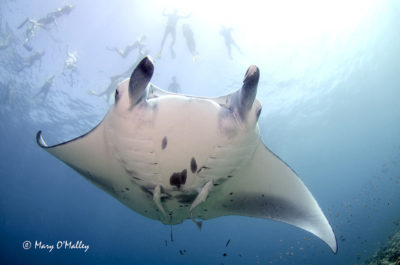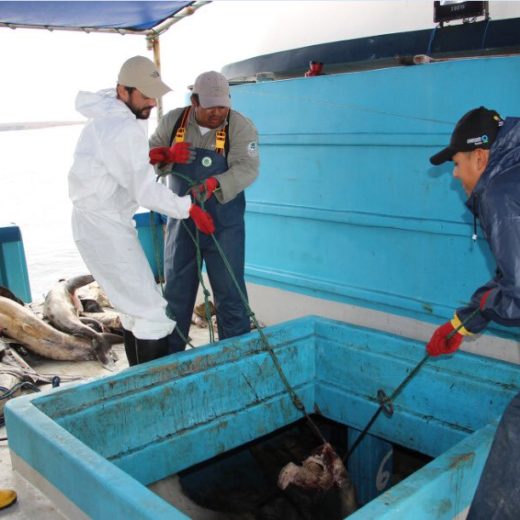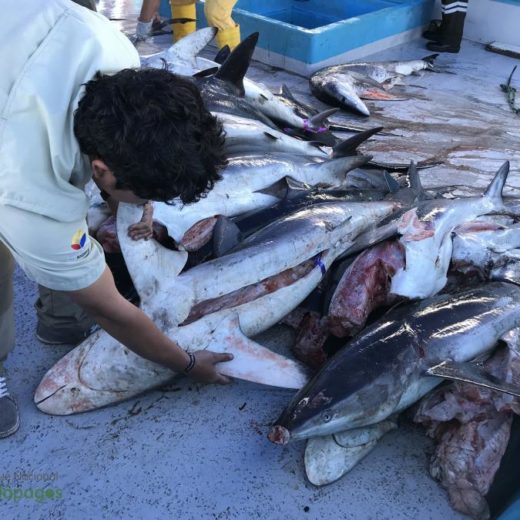
WildAid applauds the recent listing of the giant manta ray (Manta birostris) under Appendix I and II in the Convention on Migratory Species of Wild Animals (CMS), an international treaty organization concerned with conserving migratory species and habitats on a global scale. Listed on November 25, 2011, member countries are now obligated to provide strict national protections for giant manta rays and their key habitats.
Despite being protected in several countries, manta rays migrate into unprotected waters where they are subject to overfishing. CMS listing will spark coordinated conservation efforts among member countries to monitor the species and protect its habitat.
According to the International Union for Conservation of Nature (IUCN), which declared giant manta rays as Vulnerable with an elevated risk of extinction earlier this month, intense fishing pressures and growing international consumer demand have caused manta ray populations to decline by 30% worldwide, with some regions experiencing an 80% decline over the last 75 years.
Manta rays and their close cousin, mobula rays, are highly valued in Chinese traditional medicine for their gill rakers, cartilaginous projections along the gill arches used for trapping food particles when filter-feeding. Previously targeted by small-scale subsistence fisheries, increasing consumer demand has expanded the gill raker trade into a global commercial industry. According to the IUCN, targeted manta ray fisheries now operate in critical habitats and well-known aggregation sites in the Philippines, Mexico, Mozambique, Madagascar, India, Sri Lanka, Brazil, Tanzania and Indonesia.
The Manta Ray of Hope project, a joint effort of WildAid and Shark Savers, assisted Ecuador’s CMS delegates in shaping the proposal to list manta rays as well as made available to all CMS delegates a condensed version of its forthcoming Manta Ray of Hope report prior to the 10th CMS meeting in Bergen, Norway earlier this month.
The report, which will be released to the public in December, provides the most far-reaching documentation ever conducted on the intensive overfishing of mantas and mobulas and the growing pressures that have pushed these animals to the brink of local extinctions.
“CMS listing is a critical step needed to end the exploitation of mantas and mobulas”, said Peter Knights, Executive Director of WildAid. “By harnessing the cooperation and concerted efforts of member states, the CMS listing sets the stage for cohesive monitoring and regulation of the gill raker trade”.
For its submission to CMS, the Manta Ray of Hope team, led by Shawn Heinrichs, worked with partners in Ecuador, the country that sponsored the move to protect mantas, including local NGO Equilibrio Azul. The team also consulted with Dr. Andrea Marshall, Guy Stevens and Sonja Fordham of Shark Advocates International in advance of the CMS meeting to assist with preparations.
About Manta Ray of Hope: WildAid, Shark Savers, and a team of the top manta researchers in the world are partners in the Manta Ray of Hope project, a collaboration of non-profit organizations, researchers, dive operators, governments and local communities to save mantas and mobulas from this unsustainable trade. Manta Ray of Hope is developing global conservation campaigns based on sound science, including:
An upcoming report on the destructive fishing and consumption of Mobulids.
Establishment of trade bans and sanctuaries.
Education and awareness campaigns for consumers.
Ecotourism development in fishing communities.
Stay in touch and get the latest WildAid updates.
SIGN UPAbout WildAid
WildAid is a non-profit organization with a mission to protect wildlife from illegal trade and other imminent threats. While most wildlife conservation groups focus on protecting animals from poaching, WildAid primarily works to reduce global consumption of wildlife products such as elephant ivory, rhino horn and shark fin soup. With an unrivaled portfolio of celebrity ambassadors and a global network of media partners, WildAid leverages more than $308 million in annual pro-bono media support with a simple message: When the Buying Stops, the Killing Can Too.
Journalists on deadline may email communications@wildaid.org


